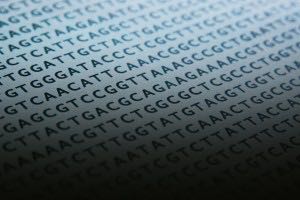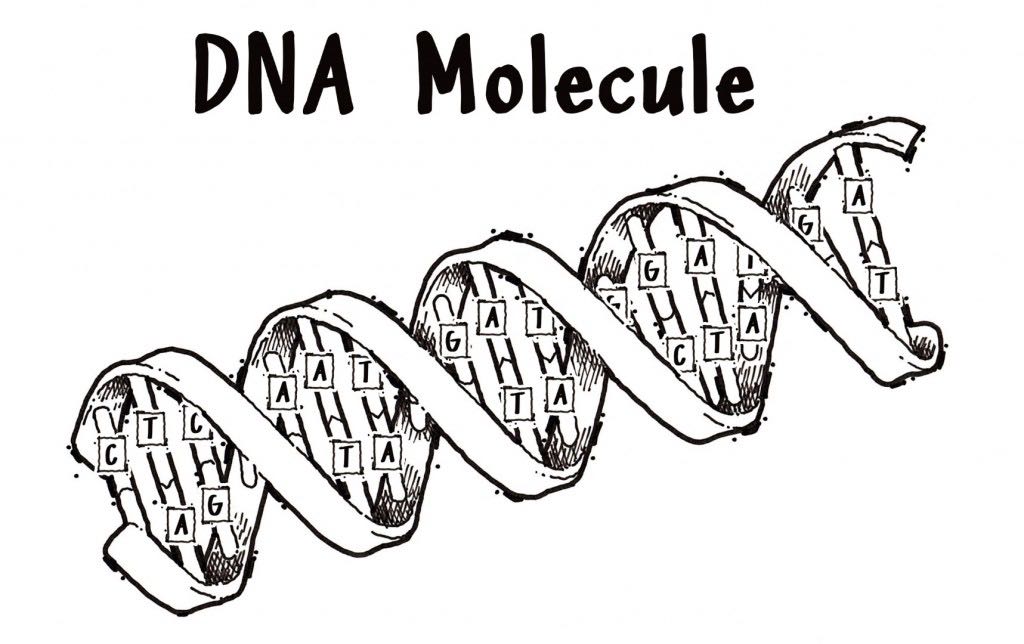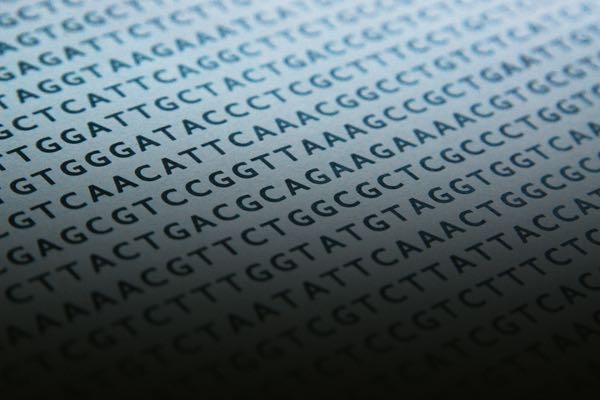
Physicist Paul Davies expresses it well: “Once this essential point is grasped, the real problem of biogenesis is clear. Since the heady successes of molecular biology, most investigators have sought the secret of life in the physics and chemistry of molecules. But they will look in vain for conventional physics and chemistry to explain life, for that is a classic case of confusing the medium with the message. The secret of life lies, not in its chemical basis, but in the logical and informational rules it exploits.”

Illustration from God’s Crime Scene
Information in RNA and DNA presents a problem for researchers, especially those who propose RNA as the first molecule to appear through some combination of chance and chemical necessity (known as the “RNA World Hypothesis”). Even if RNA is a precursor to DNA, the first RNA molecules would have to be rich in information to replicate. Information must exist first, before any other transformational process can take place. Without the prior genetic information in DNA and RNA, nothing of significance happens within cells.
Nucleotide sequences are more than statistical gibberish. They are semantically, pragmatically, and apobetically significant sources of information (for more information on these categories of information, see my new book, God’s Crime Scene). The genetic sequence has meaning and directs action for a specific purpose.
Our personal experience tells us information comes only from intelligent sources. In fact, in the entire history of the universe (and the history of science) a single instance of information arising from anything other than intelligence has never been identified. This presents a problem for those who attempt to stay “in the room” of the universe to account for genetic information. If we limit ourselves to the materials available to us in the universe, information must be explained from matter, chance, the laws of chemistry or physics, and nothing more. Nobel winning biophysical chemist, Manfred Eigen recognized this challenge when he once said, “Our task is to find an algorithm, a natural law that leads to the origin of information.” Efforts to account for information in this way have repeatedly failed. In fact, the information in DNA proves to be the decisive stumbling block for every naturalistic theory offered for the origin of life.
Every geographic location proposed—whether in the atmosphere, in the water, on the ground, under the Earth’s crust, or from outer space—requires an explanation for the existence of information in the genetic code.
Every timeframe offered for life’s origin, be it earlier or later in the history of our planet, requires an explanation for this information.
Every description of why life emerges—whether by chance or some form of physical necessity—requires an explanation for information.
And finally, every mechanism proposed for the origin of life—be it through “protein first” models, “RNA first” models, or any other model—requires an explanation for the existence of genetic information. Cambridge education Philosopher of Science, Stephen C. Meyer, says “Proposals that merely transfer the information problem elsewhere necessarily fail because they assume the existence of the very entity—specified information—they are trying to explain. And new laws will never explain the origin of information, because the processes that laws describe necessarily lack the complexity that informative sequences require. To say otherwise betrays confusion about the nature of scientific laws, the nature of information, or both.”
The chance arrangement of information in DNA is prohibitively improbable, and there are no chemical or physical laws at work to dictate its existence. We are left, then, with a paradox: the laws and forces of nature cannot produce information, but information is required for life to begin. As Paul Davies laments, “we are still left with the mystery of where biological information comes from . . . If the normal laws of physics can’t inject information, and if we are ruling out miracles, then how can life be predetermined and inevitable rather than a freak accident? How is it possible to generate random complexity and specificity together in a lawlike manner? We always come back to that basic paradox.”
Given the utter inability of chance or natural law, and our observations related to the origin of information, intelligence is the best explanation. But this requires us to look for an intelligent source transcending the limits of the physical universe. Scientists trying to account for information by staying “inside the room” seem to be rejecting the obvious. In order to create information, the author of this information must have the ability to select between possible alternatives. This ability to choose selectively requires intelligence, will, and purpose. Unguided physical processes simply cannot accomplish the task. German engineer and IT specialist, Werner Gitt summarizes it this way: “A necessary requirement for generating meaningful information is the ability to select from alternatives and this requires an intelligent, volitional entity . . . Unguided, random processes cannot do this—not in any amount of time—because this selection process demands continuous guidance by intelligent beings that have a purpose.”
Given the utter inability of chance or natural law, and our observations related to the origin of information, intelligence is the best explanation. Click To TweetThe selection process required in the creation of information requires an intelligent, volitional free agent. That’s why the information in DNA most reasonably points to the existence of God. For a much more thorough description of this evidence, please refer to God’s Crime Scene, Chapter Three – The Origin of Life: Does the Text Require an Author?

J. Warner Wallace is a Dateline featured Cold-Case Detective, Senior Fellow at the Colson Center for Christian Worldview, Adj. Professor of Christian Apologetics at Talbot School of Theology, Biola University, author of Cold-Case Christianity, God’s Crime Scene, and Forensic Faith, and creator of the Case Makers Academy for kids.
Subscribe to J. Warner’s Daily Email
J. Warner Wallace is a Dateline featured cold-case homicide detective, popular national speaker and best-selling author. He continues to consult on cold-case investigations while serving as a Senior Fellow at the Colson Center for Christian Worldview. He is also an Adj. Professor of Christian Apologetics at Talbot School of Theology, Biola University, and a faculty member at Summit Ministries. He holds a BA in Design (from CSULB), an MA in Architecture (from UCLA), and an MA in Theological Studies (from Gateway Seminary).

































